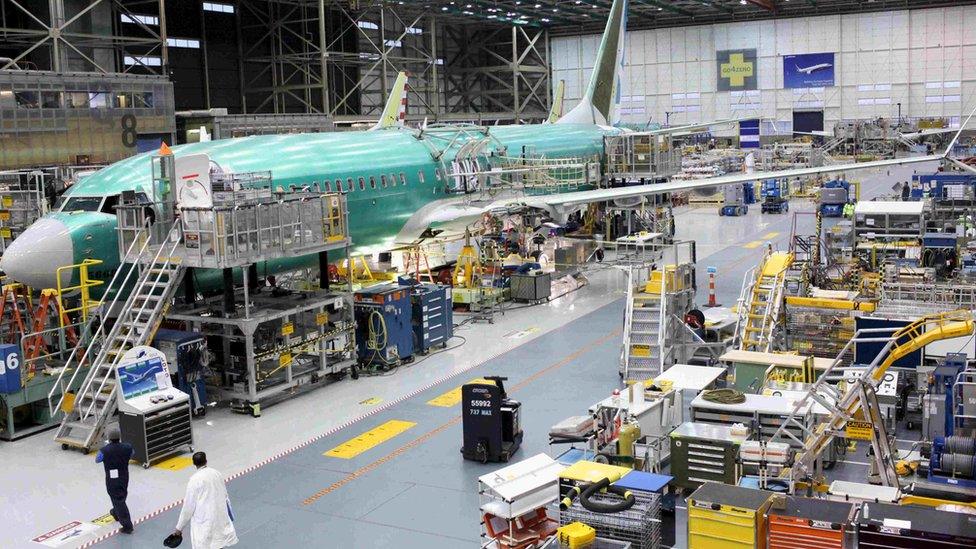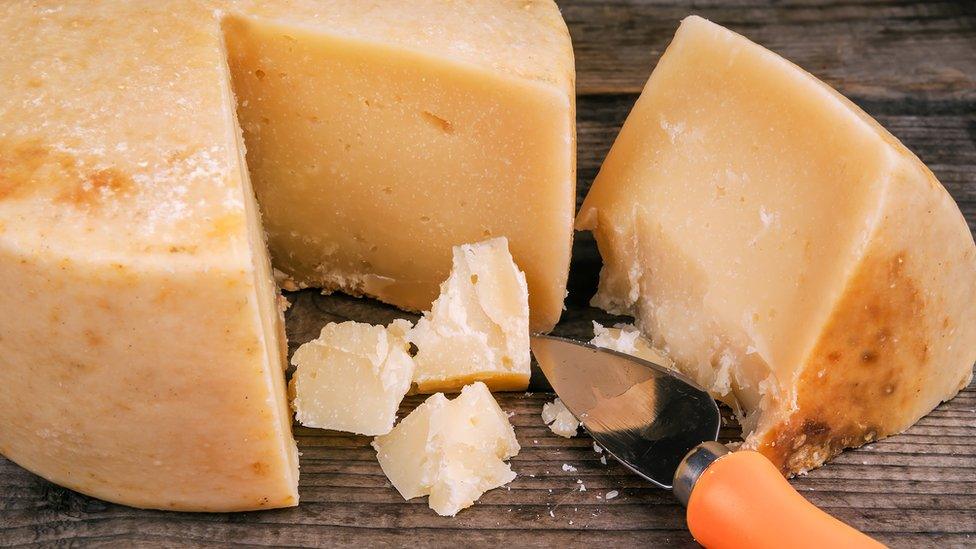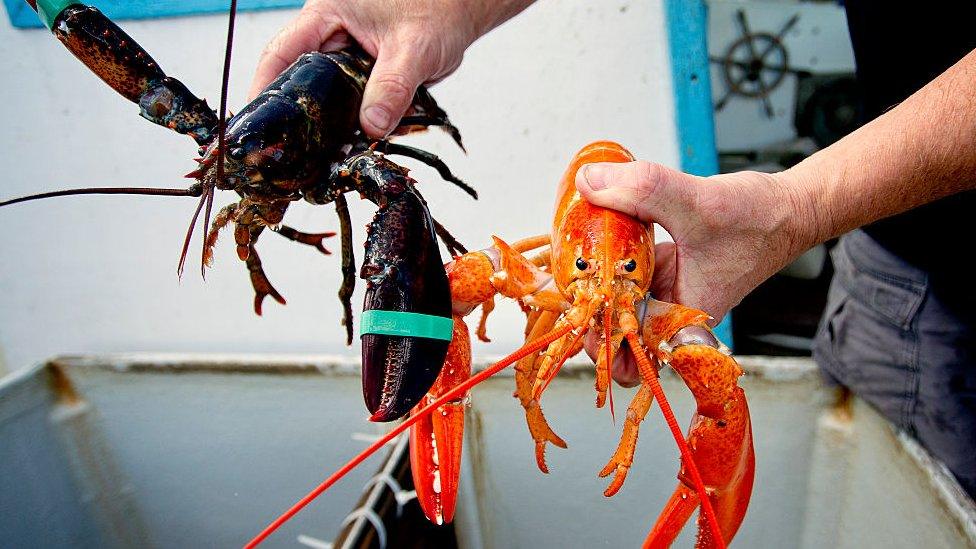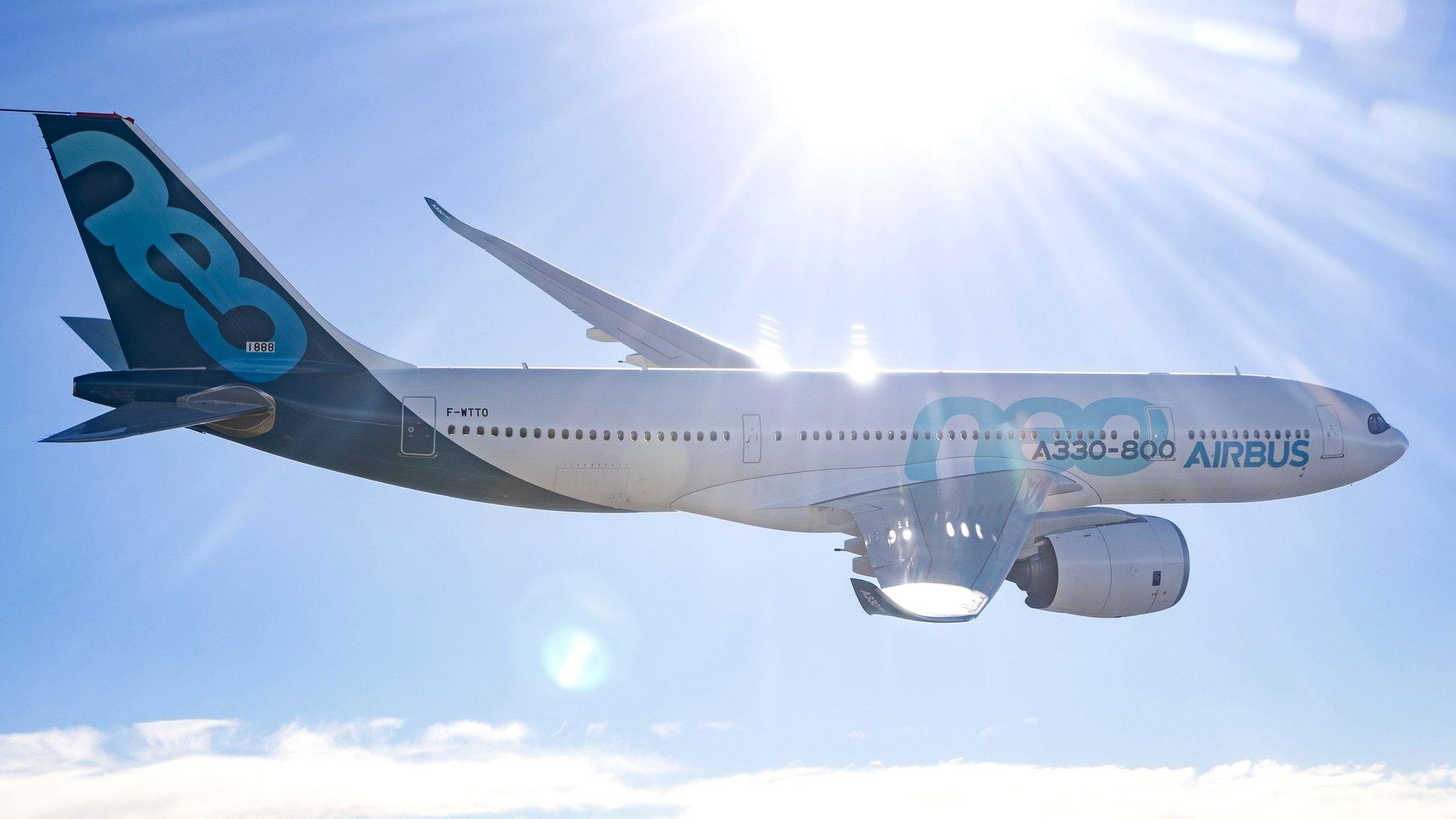EU gets $4bn bargaining chip in US trade row
- Published

The European Union may impose new border taxes on up to $4bn (£3.08bn) in US goods annually as punishment for subsidies provided to Boeing, the World Trade Organization has ruled.
The decision is the latest step in a long-running feud between the US and EU over state subsidies for Boeing and EU rival Airbus.
Last year, the WTO cleared the US to impose tariffs on $7.5bn in EU items.
But the US said the EU should not move forward with tariffs of its own.
America's top trade negotiator Robert Lighthizer said the US had removed the offending subsidies for Boeing, tax breaks granted by the state of Washington, earlier this year.
The EU says the same is true of US tariffs imposed against subsidies to the A380 plane which is being taken out of production.
"Because Washington State repealed that tax break earlier this year, the EU has no valid basis to retaliate against any US products," Mr Lighthizer said. "Any imposition of tariffs based on a measure that has been eliminated is plainly contrary to WTO principles and will force a US response."
On Twitter, EU Trade Commissioner Valdis Dombrovskis said the EU would "immediately re-engage with the US" and strongly preferred a "negotiated settlement".
European officials have been pushing the US to remove the taxes the US imposed on European goods following the WTO ruling last year.
"Otherwise, we will be forced to defend our interests and respond in a proportionate way", Mr Dombrovskis added.
How did the US-EU aircraft fight start?
The EU first lodged its complaint with the WTO in 2005, following a similar filing by the US over EU support for Airbus.
WTO panels have found both sides at fault and authorised the US to retaliate last year, leading to new US duties of 15%-25% on European items such as aircraft, French cheese and Scotch whiskey.
The EU, which drew up a list of potential American targets for tariffs last year that included handbags and ketchup, had been awaiting a final decision from the WTO about how much of a punishment it could impose.
It must formally request authorisation from the WTO before moving forward with the duties.
The two sides have said they are trying to reach a settlement that would remove the border taxes, which hurt trade by making goods more expensive.
Both the EU and US now maintain they are in compliance with WTO rules.
In a statement, Airbus chief executive Guillaume Faury said the firm wanted the two sides to settle the fight and remove tariffs.
"Airbus did not start this WTO dispute, and we do not wish to continue the harm to the customers and suppliers of the aviation industry and to all other sectors impacted," he said. "It is time to find a solution now so that tariffs can be removed on both sides of the Atlantic."
- Published13 August 2020

- Published21 August 2020

- Published2 October 2019
